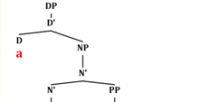Grammar can seem a little hairy when it comes to hyphens. Some rules, an infographic and a good dictionary should clear up most questions.
Click here to download high resolution poster.
Compounds
Two or more words joined together are compounds, and there are several ways to make them.
Open compound: wedding dress, ice cream, taco sauce.
Closed compound: goldfish, haircut, lighthouse.
Hyphenated compound: much-needed, father-in-law, Irish-American.
Compound Nouns
Both words are necessary to identify this particular noun, such as “wedding dress” or “cowboy boots.” Other descriptive words may be used: “white wedding dress,” “big, clunky cowboy boots.” They can be formed in all three ways: “ice cream,” “goldfish,” “father-in-law.” When in doubt, write compound nouns as two words.
Hyphens
Hyphens generally combine two or more adjectives before a noun to change everything into a single idea.
“A vine-covered wall blocked our way.”
“I visited a show for little-celebrated artists.”
Especially in the second example, if the hyphens were removed, the sentences could become confusing. “I visited a show for little celebrated artists” might make readers wonder if the artists were all short.
Use a hyphen when:
- using the prefix “ex-.”
“Bob’s ex-wife chased him with a rake.”
- using the prefix “self-” except for “selfless” and “selfish.”
“Self-reliance is needed when working alone.”
- the prefix ends with the same letter that the root word starts with.
“The fire-engine was red.”
- adverbs not ending in “-ly” precede a noun, but only when before the word they are describing.
“They took a well-deserved break.”
“The break they took was well deserved.”
- using the prefix “re-” if it means “again” and to prevent confusion with other words.
“I re-took the test.”
- the root word is capitalized.
“To hate apple pie is un-American.”
- showing relationship.
“I have tickets for the Packers-Bears game.”
- writing out fractions and numbers from twenty-one through ninety-nine.
“One-third of all pigeons recognize my car.”
“Twenty-five of them were in line to use it.”
- using comparative and superlative adjectives with other modifiers.
“I bought the lowest-priced car.”
“Frank makes better-tasting burgers.”
Hyphenating Verbs
If the two words are being used as a verb, they are usually hyphenated, but many are also written as a single word. If checking a dictionary for the verb and you do not find it, use a hyphen.
“Dave will often baby-sit for extra money.”
“The shirt’s tag says to dry-clean only.”
Tips
Use a comma and not a hyphen where “and” can be used, such as “long, winding road.” “Long-winded speaker,” on the other hand, needs a hyphen.
Be careful of adverbs; they may already be doing this job and do not need a hyphen. Adverbs ending in “-ly” already point to the word they are modifying and do not need help, such as “freshly cooked lasagna” and “newly born puppies.”
Do not use spaces inside hyphenated words unless it is a “hanging” hyphen: “third- and fourth-century ruins.”
Hyphens can be used to chop apart a word at the end of a sentence, but do not leave a single letter on the previous or next line.
“I was leaving, but I have to even-
tually come back for my laundry.”
There are often various options when combining words, and you can always check a dictionary. Can you think of any compound words that are acceptable in more than one way?



![Either… or/neither… nor and double negatives [infographic]](https://www.grammar.net/wp-content/uploads/2013/09/double_negatives_web-version-308x95.jpg)
![Could care less or couldn't care less and other tricky misused expressions [infographic]](https://www.grammar.net/wp-content/uploads/2013/09/could-care-less_small-308x95.png)



